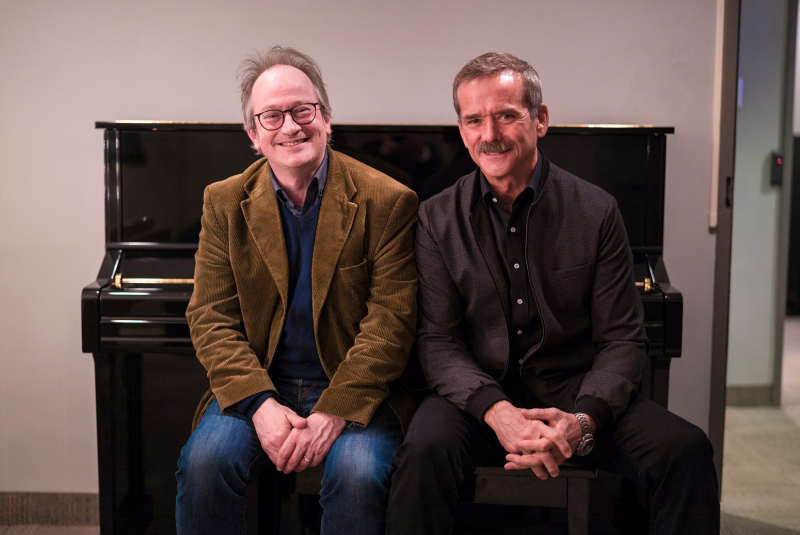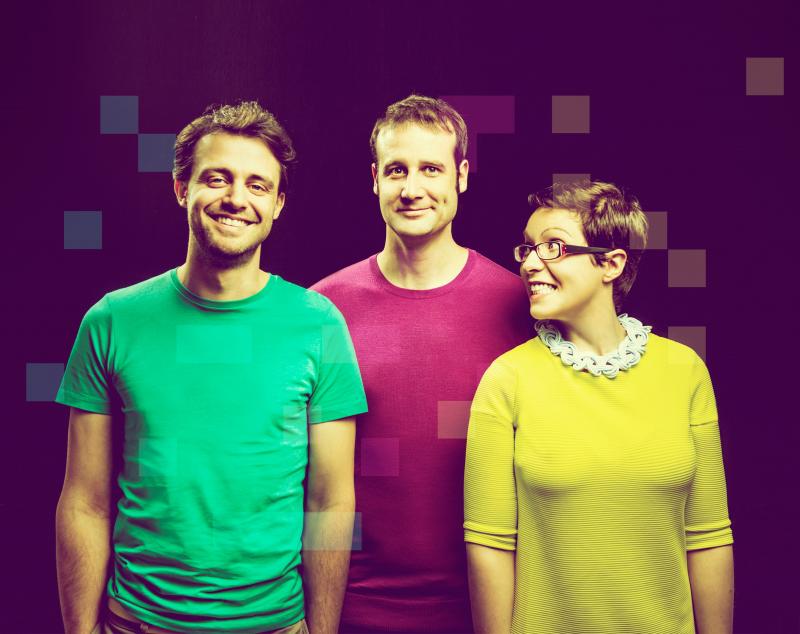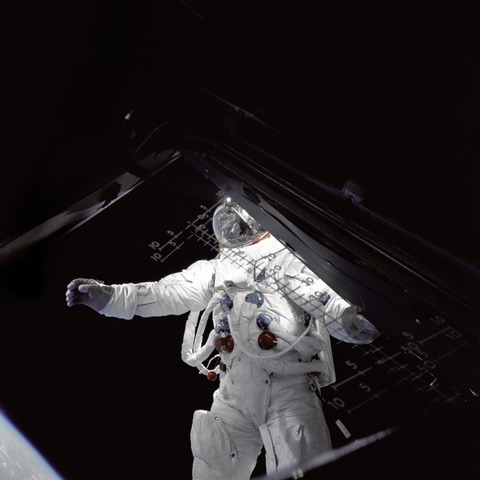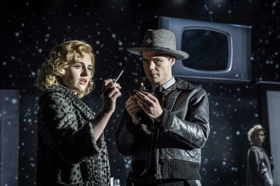Interview: Robin Ince Talks SPACE SHAMBLES at the Royal Albert Hall

As part of its inaugural Festival of Science, the Royal Albert Hall is preparing to host a multitude of space-related events. One of those events is Space Shambles, a night of science, music, comedy and wonder hosted by astronaut Chris Hadfield and comedian Robin Ince.
Ahead of the event, which takes place on 15 June, we asked Robin Ince a few questions. Here's what he had to say!
What was the impetus for the development of Space Shambles?
Any excuse to hang out with astronauts! We're always trying to find new ways of mixing science with entertainment. I started putting on science variety nights about 12 years ago, and every Christmas we put on a big show at Hammersmith Apollo where you may well see Duran Duran rub shoulders with theoretical physicists and a chemist blowing something up in a giant test tube.
It was doing these shows that led to me meeting Chris Hadfield. And when the Albert Hall decided to do a space exploration season, this seemed like a good meeting of minds.
How did you first get interested in science? And how do you go about making scientific concepts engaging for others?
Like pretty much every child, I found science fascinating and then that was educated out of me. I started reading science books again in my mid twenties and working out ways for people to approach ideas about why our universe is as it is and we are as we are.

There are so many fascinating stories of how human beings have come to know what they have come to know and how they're trying to discover more - once you start to share them, people are usually engaged.
Many science teachers battle with a curriculum that too often gives them time only to teach "the facts" and not the incredible stories of how they came to be.
Everyone I work with is enthusiastic and passionate and, as we don't have an Education Secretary to tell us what we do, we can go straight to the excitement of it all. It's not so much informing people as hopefully infecting them with a thirst for knowledge.
Is it tricky balancing content to satisfy real science buffs alongside comedy and music fans?
The key is passion. None of our guests are faking it. We take it seriously, but have fun too. I think if we made it puerile or dumbed down, those with a greater understanding of science may get annoyed, but most of them are happy to see it celebrated, to see that it's not just people in the scientific world that want to know more.
We get scientists coming up to us after shows and saying, "Sometimes, after months of repeating the same experiments in a cold lab, I forget how I got involved in all this - tonight reminded me why I love it."

Can you give us any sneak previews of Space Shambles?
Rusty Schweickart was on Apollo 9, the first flight of the lunar module, which is incredibly exciting. Monica Grady is one of the UK's leading space scientists. Stewart Lee can be quite cheekily acerbic about space exploration, though I have no idea what he'll be doing this time!
There may well also be the most dramatic and theatrical moment of mathematics ever witnessed at the Albert Hall thanks to Festival of the Spoken Nerd, and Chris Hadfield is one of the finest explainers of what it is to be a human in space. We also have a top-secret band who are quite wonderful, and lots, lots more surprise guests too...
Any particularly theatrical elements?
Apart from the dramatic moments with mathematics, expect lasers. Something very exciting with lasers.
It's not unknown for theatre to explore science and space - for example, Nick Payne's Constellations or Alistair McDowall's X. Why do you think writers enjoy using such themes?
Science broadens the possibility of imagination: after Copernicus, we're no longer the centre of the universe; after Darwin, we're no longer an animal unique from all other living things; after quantum theory, we have a world that seems no longer definite, but one of many probabilities.
All these ideas enrich the confusion and delight of being on an adventure in the universe. They increase our possibilities - each one can be a thought experiment and so, if plays can be seen as thought experiments, they feed the minds of playwrights.
.jpeg)
If you were ever to write a play, do you think you'd go for a science or space theme?
I might write a lengthy monologue of someone being spaghettified as they enter a black hole.
Do you see any parallels between the scientific exploration of space, and the artistic exploration of ideas on the stage?
We're trying to work out our place in the universe and find purpose in a purposeless universe; the exploring of ideas, whether in art or science, aims to fulfil those needs.
Shakespeare has Hamlet say that "there are more things in heaven and Earth... than are dreamt of in your philosophy", suggesting human knowledge is limited. What's your view on how theatre and the arts can help to communicate new information to new audiences?
Because some people feel that science "isn't their thing", art can work as a lure into ideas they wouldn't approach if they saw the subject on the non-fiction shelf of the mobile library. My current solo show is hopefully silly and frenetic with lots of odd impressions, but it's also about art.
It's nice to get messages from people afterwards telling me they haven't been to an art gallery for years, but went to one a few days after my show. I always return to George Carlin's line that comedy is a low art but a very potent one - you can pack in a lot of ideas, and whilst you may not be able to tackle them in depth, you can throw out enough information to create intrigue.

Have you seen any theatrical productions that have changed your perspective or made you see something in a new way?
Michael Frayn has obviously been one of the prime movers in writing brilliant plays that are also packed with ideas, such as Copenhagen, and Photograph 51 by Anna Ziegler (about Rosalind Franklin and the DNA double helix) was fascinating and educational.
I'd love to see more science fiction plays. Science fiction can be so great at exploring ideas, but I wonder if it's still looked down upon as a genre in the theatre world. But I adored The Twilight Zone adaptation at the Almeida.
Finally, why should people come to see Space Shambles, and what do you hope they'll take from the experience? And if it goes well, might we see an encore show or a tour?
We certainly hope this isn't a one-off. One of my favourite memories from one of the Hammersmith Apollo science shows with Brian Cox was watching the attention and hearing the silence as Chris Hadfield explained the sensation of both leaving the Earth and returning to it.
I hope that the night ends with a few hundred people convinced as never before that they want to go to Mars and beyond, and that they're also reminded of the rarity of a planet likes ours, burdened with life - some of which has started to think about journeying to the stars.
Tickets and more information about Space Shambles can be found here
Photo credits: Idil Sukan/Draw HQ, Colin Hutton, Marc Brenner
Videos
.png)